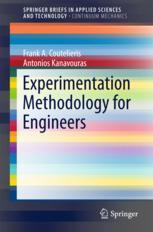

Most ebook files are in PDF format, so you can easily read them using various software such as Foxit Reader or directly on the Google Chrome browser.
Some ebook files are released by publishers in other formats such as .awz, .mobi, .epub, .fb2, etc. You may need to install specific software to read these formats on mobile/PC, such as Calibre.
Please read the tutorial at this link: https://ebookbell.com/faq
We offer FREE conversion to the popular formats you request; however, this may take some time. Therefore, right after payment, please email us, and we will try to provide the service as quickly as possible.
For some exceptional file formats or broken links (if any), please refrain from opening any disputes. Instead, email us first, and we will try to assist within a maximum of 6 hours.
EbookBell Team

4.7
46 reviewsThis book delivers a methodological approach on the experimentation and/or simulation processes from the disclaiming hypothesis on a physical phenomenon to the validation of the results. The main benefit of the book is that it discusses all the topics related to experimentation and validation of the outcome including state-of-the-art applications and presents important theoretical, mathematical and experimental developments, providing a self-contained major reference that is appealing to both the scientists and the engineers. At the same time, these topics are encountered in a variety of scientific and engineering disciplines.
As a first step, it presents the theoretical and practical implications on the formation of a hypothesis, considering the existing knowledge collection, classification and validation of the particular areas of experimenting interest. Afterwards, the transition from the knowledge classes to the experimentation parameters according to the phenomena evolution contributors and the systemic properties of the descriptors are discussed. The major experimenting requirements focus on the conditions to satisfy a potential disclaim of the initial hypothesis as conditions. Furthermore, the experimentation outcome, as derived via the previous experimentation process set-up, would be validate for the similarities among the existing knowledge and derived new one. The whole methodology offers a powerful tool towards the minimization of research effort wastes, as far as it can identify the lacks of knowledge, thus the areas of interest where the current research has to work on.
The special features of this book are (a) the use of state-of-the-art techniques for the classification of knowledge, (b) the consideration of a realistic systemic world of engineering approached phenomena, (c) the application of advanced mathematical techniques for identifying, describing and testing the similarities in the research results and conclusions, and (d) the experimental investigation of relevant phenomena.